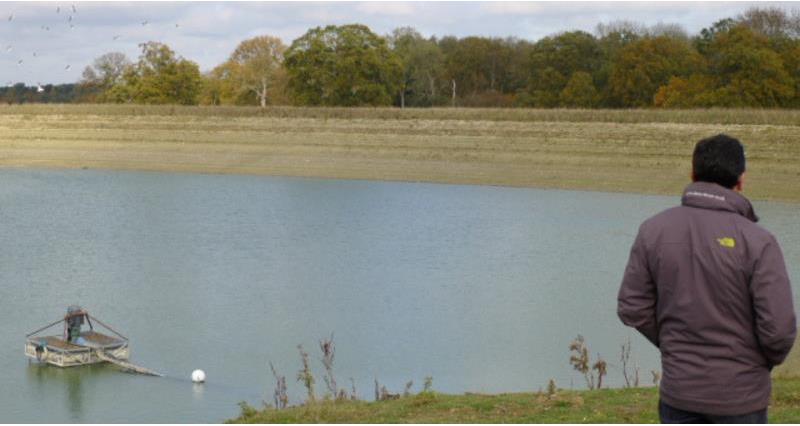Defra and the Environment Agency’s National Drought Group (NDG) met on 19 November to review the impact of this year’s extreme weather events and to look ahead to prospects for 2019.
After receiving reports from the public water supply, farming, environment and navigation sectors the group concluded that, working on the reasonable worst case scenario of winter rainfall at 80% of long term average (LTA) there could be localised issues affecting farming and the environment in 2019.
The Met Office is closely tracking global and UK weather, but stable patterns through to the New Year make forecasts difficult to make with any great certainty – there is a long way to go.
The group agreed that although forecasts indicate no immediate risks, we are not yet ‘out of the woods’ and it is prudent continue to plan actions that preserve water and prevent – or at list mitigate against – future drought.
The next Met Office forecast is due for release on 3 December.
South east and south west England have been drier in recent months. In those regions, a dry winter may reduce recharge and water companies could start with lower groundwater levels than normal.
Severn Trent Water's northern area and Yorkshire Water still have low reservoir levels and need to take action to help refill these to be ready for next summer. There is no risk to supply in the short term, but any failure to refill strategic reservoirs over the winter could increase the possibility of imposing temporary use bans (TUBs) on customers in spring 2019.
The Environment Agency is recommending that all water companies continue to monitor their position and take early action to reduce the risk of drought measures next year. Actions include controlling and reducing leakage, actively engaging with customers, ensuring they manage their sources of water, and reducing possible outage by prioritising maintenance of their supply networks
Farmers have endured a difficult year due to extremes of weather. The NFU is urging farmers to review their access to water and the associated risk of supply interruptions. Contingency planning in readiness for 2019 and the longer term seems to be a sensible step to take.
A number of farmers benefited from the Agency’s flexible licensing approach in 2018 and we will continue to work on keeping that position updated to cater for changing circumstance. For example, we want the Agency to be ready to allow reservoirs to be filled outside the normal ‘winter calendar months’ as long as sufficient flow is available in rivers.
We are also encouraging farmers to build on the flexible licensing opportunities that have been provided by putting in place sooner rather than later schemes for the pre-approval of licence trades even if, in the event, they are not ultimately needed.
See also:
